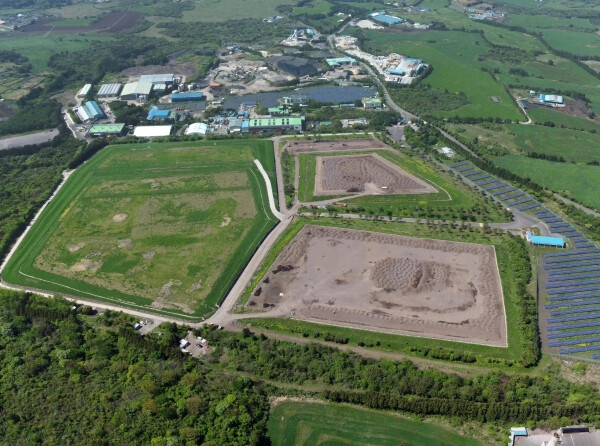
A landfill in Wiltshire, UK, is preparing to transform into a futuristic farm. The "SuperMidden" project, driven by landfill operator Crapper & Sons, is an innovative endeavor that aims to operate a large-scale greenhouse using gas generated from waste, supplying fresh fruits and vegetables to the local community. This initiative is expected to do more than just solve environmental problems; it's anticipated to present a new paradigm for food production methods and distribution systems.
The SuperMidden Project: Waste to Resource
At the heart of the SuperMidden project is the capture and purification of methane gas produced at the landfill to generate electricity. The high-purity carbon dioxide (CO2) that comes as a byproduct of this process will then be utilized for growing crops in the greenhouse. Crapper & Sons levels a portion of the landfill into structures called "cells," covers them with concrete, and then introduces waste to generate gas. This gas is then transformed into "clean carbon dioxide" after impurities are removed through advanced facilities, and subsequently supplied to the greenhouses.
Enhanced Growth and Sustainable Practices
Carbon dioxide is an essential element for plant photosynthesis, and higher concentrations are more favorable for crop growth. Crapper & Sons explained, "Crops grown in a CO2-rich environment will grow much faster than in regular air." Furthermore, crops will be cultivated using hydroponics, preventing direct contact with soil and thereby eliminating soil contamination issues at the source. Heat, light, and electricity will all be supplied by energy produced at the landfill. This approach moves away from traditional farming methods, maximizing land use efficiency and enabling stable crop production unaffected by climate change.
Diversifying Crop Production
SuperMidden plans to produce tropical and subtropical crops, such as avocados, which are typically difficult to grow in the UK. This is expected to lead to self-sufficiency in agricultural products that were previously imported, significantly reducing transportation distances and consequently lowering carbon emissions. Crapper & Sons anticipates that this project could meet 80% of the fruit and vegetable demand in the surrounding areas.
Overcoming Challenges for a Sustainable Future
Of course, such an innovative undertaking comes with technical and institutional challenges. However, Crapper & Sons expressed confidence, stating, "There will be no technical failure," and "introducing something new itself is the biggest challenge." The SuperMidden project is gaining attention as a precedent that breaks conventional wisdom about waste treatment methods and offers a new solution for a sustainable future. This attempt to create value from discarded resources and achieve both environmental protection and food security holds significant implications globally.
[Copyright (c) Global Economic Times. All Rights Reserved.]




























